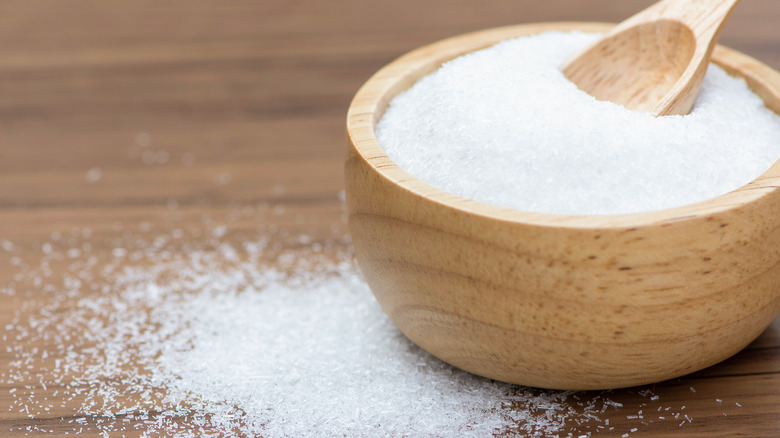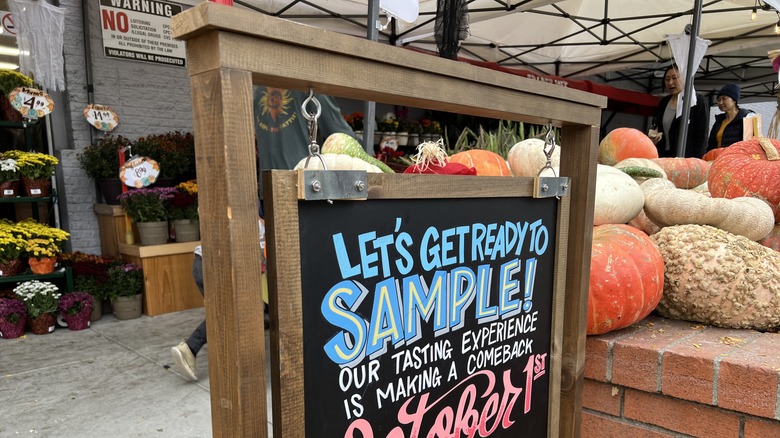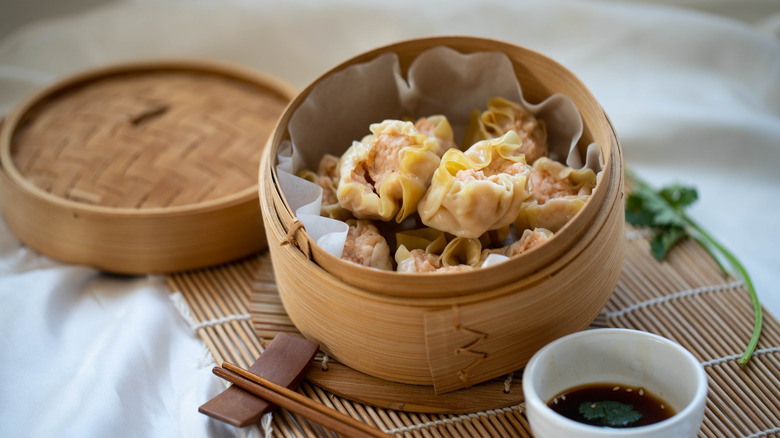It's True, You'll Never Find MSG In Trader Joe's Products
When it comes to quality unique grocery store food products, Trader Joe's really is the brand that cannot be topped. Wandering through just the frozen foods aisle alone, you're likely to come across five things you didn't know could be prepared from frozen, all of which will be delicious at a not-terrible price point (thanks to the fact most of their food is made in-house). But for all the company's staggering variety, there's one ingredient you will not find anywhere on Trader Joe's shelves, and it's one that is genuinely kind of amazing in 2023.
That product is a familiar villain: monosodium glutamate, or MSG. Yes, it seems Trader Joe's still hasn't caught on to the memo that MSG isn't a problem. Though most Americans have by now caught onto the fact that MSG is not actually unhealthy in any way, Trader Joe's is apparently way behind the curve.
Trader Joe's won't actually say why they don't allow MSG
It's extremely important to note that the entire controversy around MSG is absurd — study after study has indicated there are no health concerns related to monosodium glutamate. So why did Americans spend decades being afraid of a simple flavor enhancer? Because of racism, basically. MSG was (and is) associated with "foreign" food — both the Chinese food that makes the heaviest use of it and the Japanese chemist, Kikunae Ikeda, who discovered it in the first place in 1908. This supposed foreignness made it an easy target.
There are actually a host of ingredients Trader Joe's doesn't allow into its products, according to the company's own podcast, Inside Trader Joe's. These include bleached flour, artificial preservatives, artificial flavors, and artificial colors, as well as that familiar old healthy eating bugaboo, GMOs. Where it gets weird (and more than a little suspect, though) is that while the Trader Joe's website specifies why they don't include the other listed ingredients, it's curiously silent about why MSG isn't allowed in its food. Obviously, it cannot be claimed for certain that the reason MSG isn't in TJ's products is that familiar old racism, but the lack of an explanation certainly raises a few eyebrows.
The entire MSG controversy was based on xenophobia
Even wilder, the controversy around MSG wasn't even started by someone with an axe to grind against the product, just someone making a bet. In 1968, Dr. Howard Steel, writing under the extremely problematic pseudonym "Ho Man Kwok," sent in a letter to the New England Journal of Medicine as a bet with a friend that he could get them to print an obvious hoax. The letter claimed a list of made-up symptoms Steel/Kwok felt every time he ate Chinese food, and pointed the finger at MSG. Though it was obviously garbage, hundreds of readers started sending in letters that they, too, felt symptoms that definitely did not exist, in a reverse-placebo effect that became possibly the 20th century's greatest example of mass hysteria. It wasn't until recent decades that people realized the entire thing was based on lies and absurdities.
To be fair, we can't really put it all on Steel, here, because it's not like he tried to make the hoax seem believable. In addition to that ridiculous name, he claimed he was the "Senior Medical Researcher" at the "National Biomedical Research Foundation" in Silver Spring, Maryland. The issue here is that the National Biomedical Research Foundation does not exist. One would think the N.E. Journal would do the most cursory amount of research before printing the letter, but apparently, their fact-checkers were on vacation that week.


